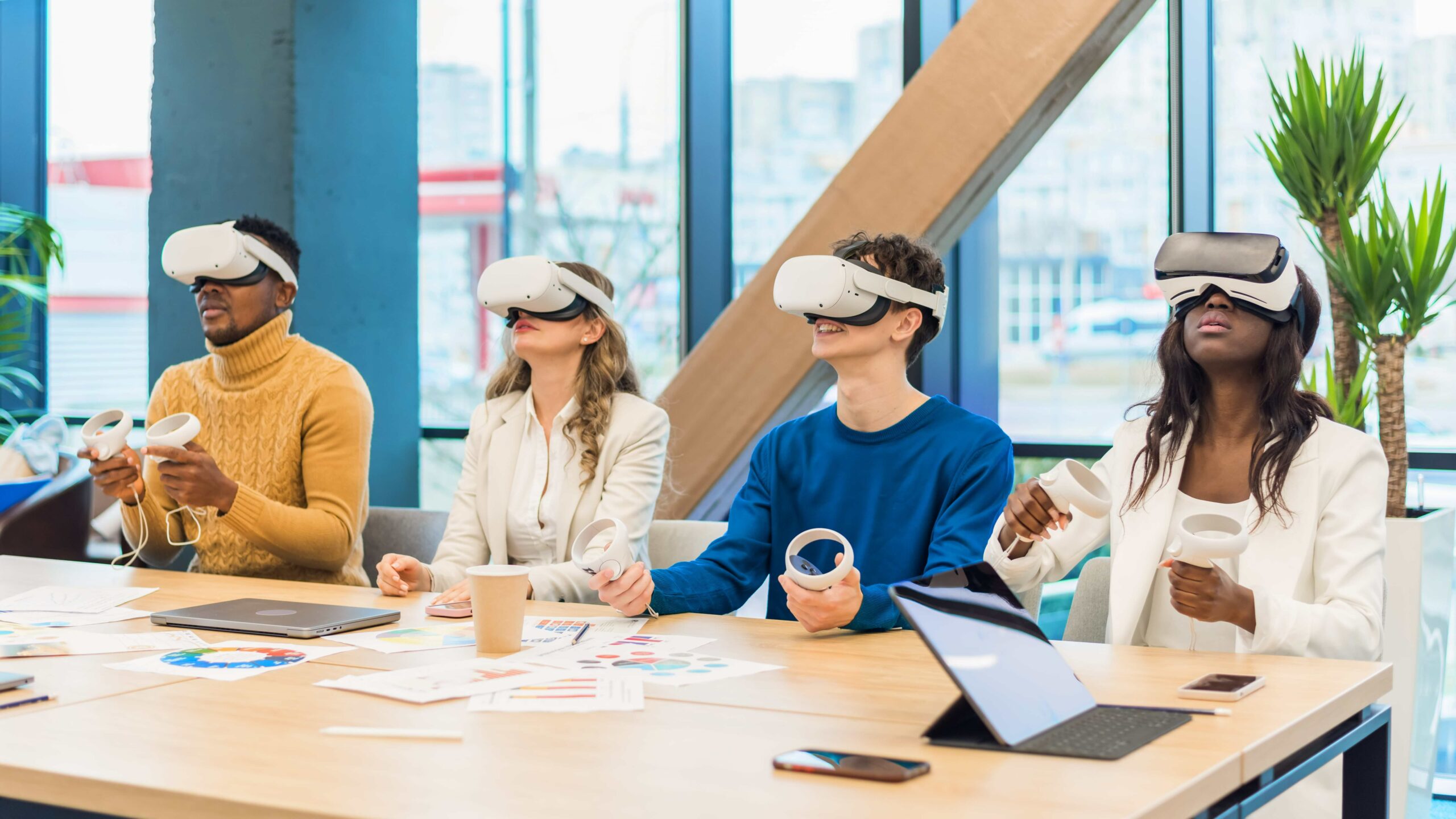Virtual Reality vs. Transforming Training in Social Care
Using Virtual Reality (VR) in training social care workers offers several valuable benefits: enhancing the learning experience and preparing them for real-world challenges. Here are some advantages of incorporating VR in social care worker training.
One of the key ways in which VR is transforming social care is by enhancing therapeutic interventions. For instance, VR can be used to create immersive and interactive environments that simulate real-life scenarios, allowing individuals to practice and develop essential life skills in a safe and controlled setting. This is particularly beneficial for individuals with autism spectrum disorder or those recovering from traumatic experiences.
Moreover, VR can also be utilised to improve the mental well-being of individuals in social care settings. By immersing users in calming and relaxing virtual environments, VR can help reduce stress, anxiety, and depression. Additionally, VR can provide a sense of escapism and enable individuals to explore new places and experiences, even if they are physically unable to do so.
VR is also making a significant impact in caregiver training and education. Through VR simulations, caregivers can practice various scenarios and learn how to respond effectively to different situations. This hands-on training can greatly enhance their skills and confidence, ultimately leading to improved care for those in need.
Furthermore, VR is also being used to combat social isolation among individuals in social care. By connecting people virtually, VR can create a sense of community and enable individuals to engage in social activities and interactions, even if they are physically isolated. This can greatly improve the overall well-being and quality of life for individuals who may otherwise feel lonely and disconnected.
In summary, virtual reality is indeed transforming social care in numerous ways. From enhancing therapeutic interventions and improving mental well-being to providing immersive caregiver training and combating social isolation, VR has the potential to revolutionise the way we provide care and support to individuals in need. As technology continues to advance, we can expect even more innovative applications of VR in the field of social care, ultimately leading to a more inclusive and compassionate society.
To find out about how Think Tank Academy will be innovating with VR and to see our courses, get in touch today.
- Get in touch
- sales@thinktank-academy.com
- www.thinktank-academy.com
